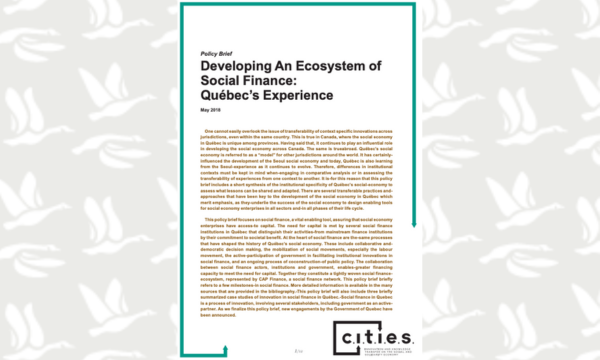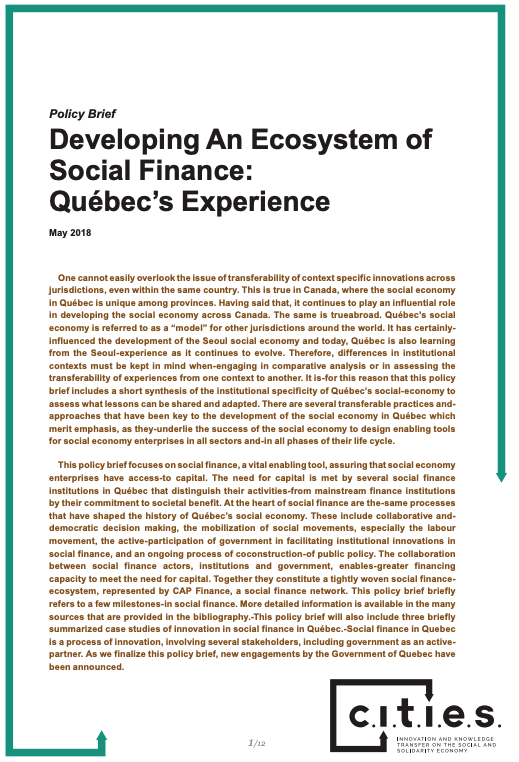One cannot easily overlook the issue of transferability of context specific innovations across jurisdictions, even within the same country. This is true in Canada, where the social economy in Québec is unique among provinces. Having said that, it continues to play an influential role in developing the social economy across Canada. The same is truea broad. Québec’s social economy is referred to as a “model” for other jurisdictions around the world. It has certainlyinfluenced the development of the Seoul social economy and today, Québec is also learning from the Seoul-experience as it continues to evolve. Therefore, differences in institutional contexts must be kept in mind when-engaging in comparative analysis or in assessing the transferability of experiences from one context to another. It is for this reason that this policy brief includes a short synthesis of the institutional specificity of Québec’s social-economy to assess what lessons can be shared and adapted. There are several transferable practices and approaches that have been key to the development of the social economy in Québec which merit emphasis, as they underlie the success of the social economy to design enabling tools for social economy enterprises in all sectors and-in all phases of their life cycle.
This policy brief focuses on social finance, a vital enabling tool, assuring that social economy enterprises have access-to capital. The need for capital is met by several social finance institutions in Québec that distinguish their activities-from mainstream finance institutions by their commitment to societal benefit. At the heart of social finance are the-same processes that have shaped the history of Québec’s social economy. These include collaborative and democratic decision making, the mobilization of social movements, especially the labour movement, the active-participation of government in facilitating institutional innovations in
social finance, and an ongoing process of coconstruction-of public policy. The collaboration between social finance actors, institutions and government, enables greater financing capacity to meet the need for capital. Together they constitute a tightly woven social financ eecosystem, represented by CAP Finance, a social finance network. This policy brief briefly refers to a few milestones-in social finance. More detailed information is available in the many sources that are provided in the bibliography. This policy brief will also include three briefly summarized case studies of innovation in social finance in Québec. Social finance in Quebec is a process of innovation, involving several stakeholders, including government as an active partner.






